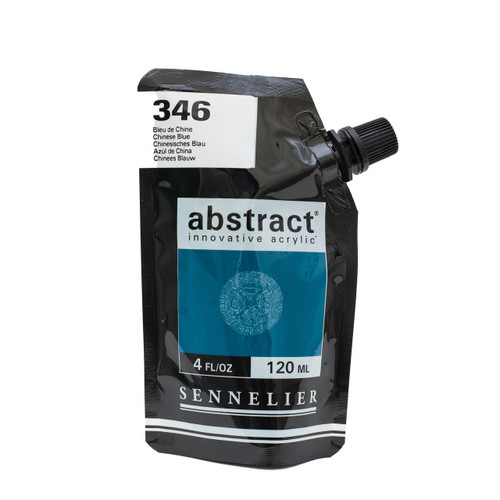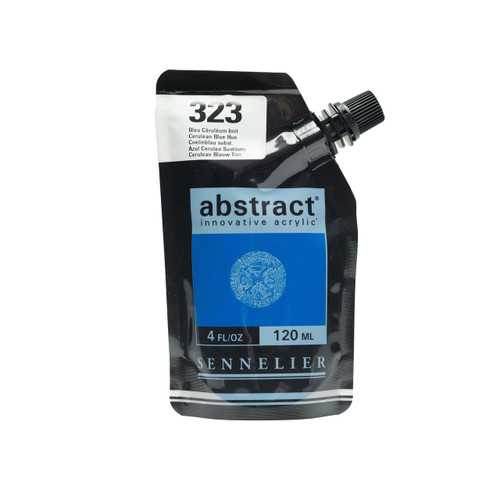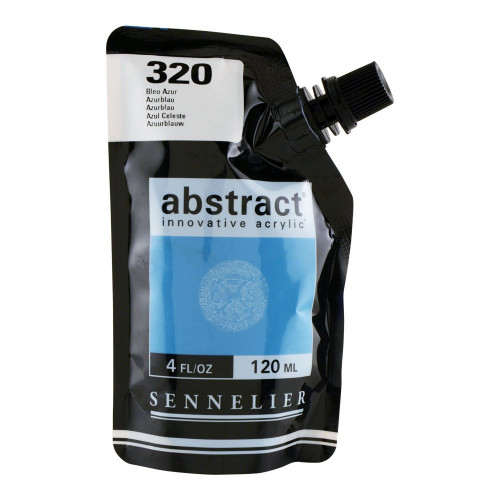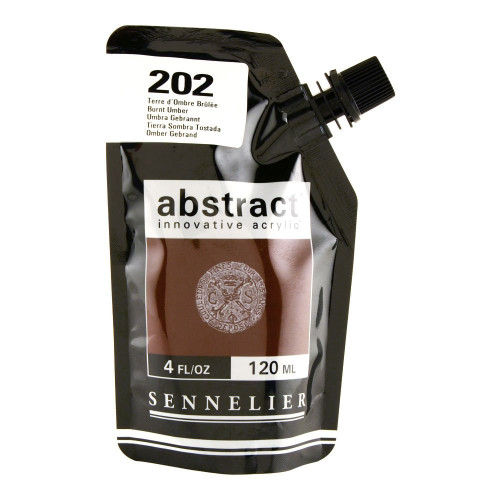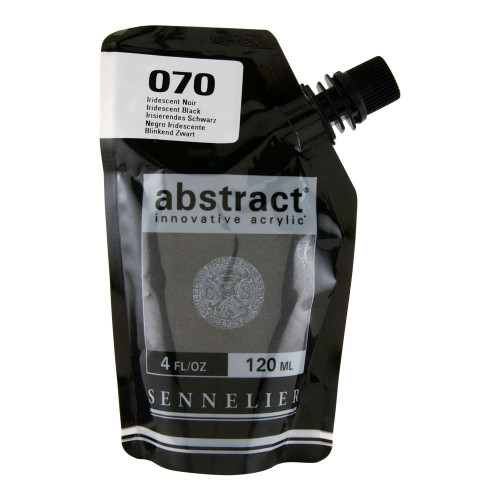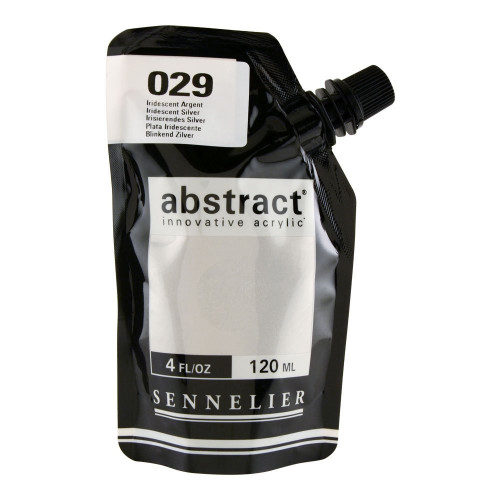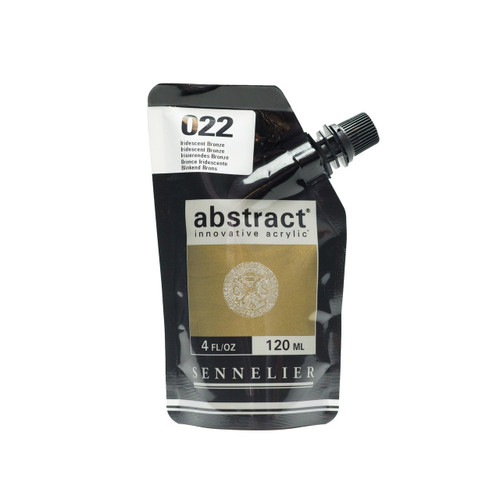Acrylic Paint
Choose from Artist Quality, Student Quality Acrylic, or Beginners Acrylic Paint:
-
Rembrandt & Amsterdam Expert - Artist quality Heavy Body Acrylic
-
Van Gogh - High Quality Student Paint that is not heavy body, but still holds the brush stroke
-
Amsterdam Standard Series - Student Quality equivalent of Liquitex and System 3
-
Art Creation - Beginner and Entry Level Acrylic Range, including Marker Pens and Spraypaint- The equivalent of Reeves, only higher quality.
What is Acrylic Paint made up of?
Acrylic is a synthetic water-based paint. Simply put it is plastic, nothing more, and is made of a polymers that were developed in the 1950s. However, it is only now really becoming popular amongst artists. The drying time does vary depending on the brand and quality of the acrylic paint, as well as the overall thickness of the paint and the ambient room temperature. However on average a half hour or so is a good rule of thumb for drying time. Good quality acrylics leave clear brush stokes once dry and are heavy bodied containing around 80% pigment.
Acrylic is one of the easiest and least messy types of painting methods to start off with if new to painting and, would encourage you to use colours that you like and purchase 3 types of brushes of various sizes and maybe one palette knife just to get you started. Remember to clean brushes with warm soapy water, otherwise they will dry as heard as a rock (all because of the binder-acrylic resin)
How easy is Acrylic paint to use?
You can use a drying retarder if you need more time to work with the paint, as for some the drying can be just too fast, particularly if the ambient temperature is high. The drying time also depends on the thickness of the layer, and often will be dry within an hour. The result is a durable paint layer, which guarantees the preservation of your work (without turning yellow or ageing) for years. For some the quick drying time is a real advantage. Acrylics are exceptionally good for outdoor painting if you wanted to go paint on location. In this environment you truly benefit from the fast drying time. If you do do this, it is always a good idea to bring plenty of water, sand or clean gravel for any special effects you may want in your painting. Even if you don't usually paint with a multi media edge, you will still need water for cleaning up afterwards! You don't want your brushes to go hard!
Acrylic is easy to paint with and adheres almost on any surface, and is exceptionally practical and versatile. It will also behave similar to watercolour if you really thin out a higher quality brand of acrylic with water. Remember too that acrylic dries darker as the binder in the paint goes from white to clear as it evaporates, which also causes a slight reduction in the volume of the acrylic. The colour change is something that you get used to with time, however it is a good reason to try and complete the painting in one go while it is wet, as the change is uniform across the colours and so the whole painting will change, rather than just the blocks that have been worked on (at least that's what I prefer). The main difference between wet & dry acrylic is that once dry, acrylic has a matt plasticy finish, and does not look wet any more. If you want a glossy finish it is best to spray with a glossy varnish, or mix in on your pallet with a glossy medium or gel before you start applying the acrylic colour.
What does the differences of quality make in acrylic paint?
 Artist Quality Acrylic - Rembrandt & Expert
Artist Quality Acrylic - Rembrandt & Expert
As an acrylic artist, there comes a time when you need more out of your paint in order to give you a creative edge. Higher quality paints are more expensive, but they have:
- Greater thickness
- Higher vibrancy of colour
- Greater colour choice
- Better lightfastness
- More opaque colours
Both the Rembrandt Acrylic Paint and Amsterdam Expert Acrylics are heavy body artist quality acrylics, with a slightly different colour range between them. The Rembrandt range is only available in 40ml tubes and has more metallics and pearlescent colours than the Expert range.
Enhance your painting experience by having the 'key' ingredient of 'passion' in the paint. Meet your needs with unusual colours, and choice of sizes. All at a competitive cost!
Student Quality Acrylic - Van Gogh & Amsterdam Standard Series
The main differences when comparing a study paint with an artists one, is the pigment content. However the colours that are found in both ranges still contain the same pigment, it is just there is less of it in a student range. The other main difference with acrylic is that it is not as thick and so its ability to hold the brush stroke is reduced. But you can always use a thickening medium do beef it up a bit.
The student quality acrylic brands Talens make are either the equivalent to, or better than other brands like System 3 and Galleria.
Van Gogh Acrylic has a slightly higher price point than Amsterdam Standard Series, but it is a step up in quality and represents super value, has more pigment, less filler, better lightfastness and a buttery constancy, more so than than Amsterdam Standard series. It also has the advantage of coming in a 40ml size, with black and white only available in 150ml tubes.
However the Van Gogh acrylic range does have significantly less colours than the Amsterdam Standard Series; which is of course one of the great things about the Amsterdam range as there is 80 colours to choose from, including metallic and dayglo colours, which is great if you don't have time to mix colours and need a regular consistency.
Entry Level Acrylic - Talens Art Creation
Art Creation is a budget brand, aimed fot those just wanting to try out the medium of their choice without spending allot. It has a great price point, and even though it is a "budget" range like Reeves, and still maintains a pasty paint with a good standard.
You will find this range mainly available in various sets containing 10ml tubes, as well as a basic range of colours in 75ml and 750ml.
You can still paint on a wide variety of grease free grounds in all sorts of applications, adding non-paint related materials to the acrylic colour (like sand or little stones) to give the paint another texture and added depth. Just remember it is advisable to first prepare highly absorbent grounds such as concrete and plaster with Gesso. While paper, cardboard, hardboard, chipboard and mdf are somewhat absorbent it is not always necessary to do this.
Artist Quality Amsterdam Acrylic Spray Paint and Marker Pens
Talens have added to their range a new exciting new range of paints for the highly experimental artists. Now you have the right tools to allow you to transform your dreams into creations.
One of the exciting possibilities with this new range is that it is "INTERMIXABLE" with the markers and as well as the Amsterdam Acrylic. The colour pigments are also the same, so matching colours should prove easy! Why not start off your vision and make refinements along the way with the Markers to make your line drawings.
The nibs in the markers are reversible and there is also a range of spare nibs. You can buy spare caps, as well as ones that allow you to change the spray diameter.
Amsterdam Spray paint, is a low pressure painting system that is safe to use indoors as there are no harmful odours (but you might still want to think about using a dust mask). Even use the sprays on plastics and polystyrene. In fact you can use the spray and markers on many surfaces. They are tried and tested on cardboard, wood, canvas, paper, fabric and even terracotta.

